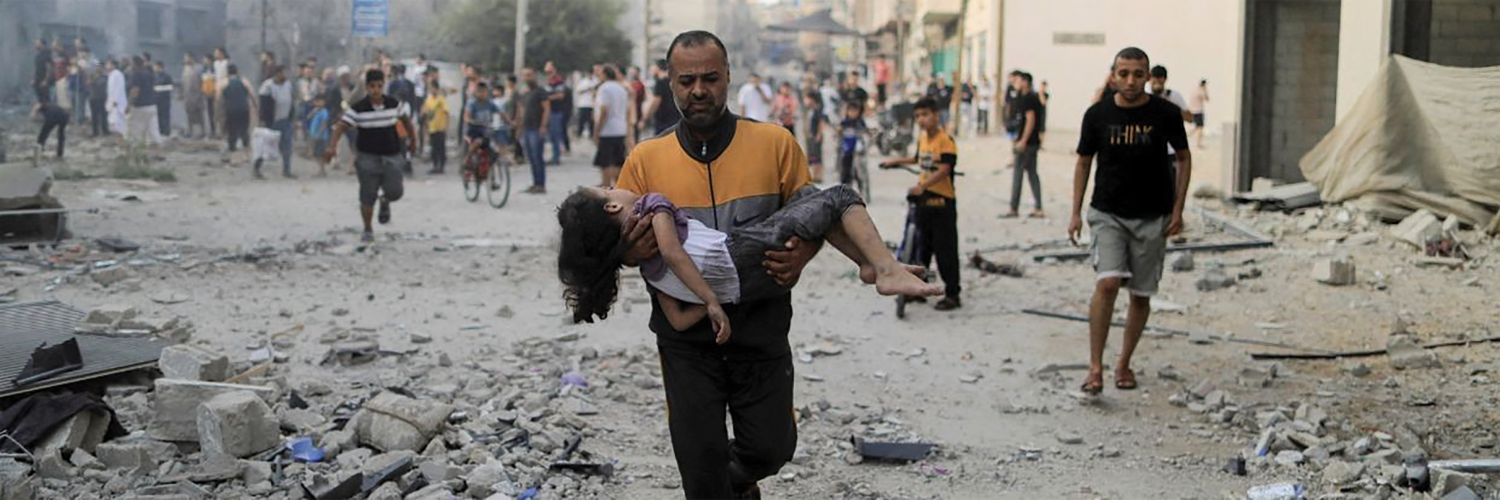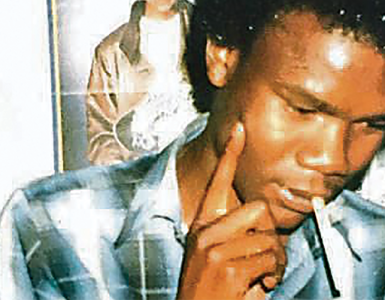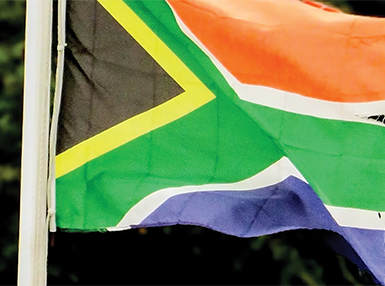INHUMANITY: Addressing an “Interactive Dialogue on the human rights situation in the Occupied Palestinian Territory” yesterday, UN High Commissioner for Human Rights Volker Türk expresses “grave fears” about the toll on civilians in Gaza…
By Volker Türk
GENEVA – There appear to be no bounds to – no words to capture – the horrors that are unfolding before our eyes in Gaza. Since early October, over 100 000 people have been killed or wounded. Let me repeat that: about one in every 20 children, women, and men, are now dead or wounded. At least 17 000 children are orphaned or separated from their families, while many more will carry the scars of physical and emotional trauma life-long. Today, the total number of people killed has exceeded 30 000. And tens of thousands of people are missing, many presumed buried under the rubble of their homes.
This is carnage.
The attacks on Israeli civilians on October 7 and 8 were shocking. Profoundly traumatising. And totally unjustifiable. The killing of civilians, reports of torture and sexual violence inflicted by Hamas and other Palestinian armed groups, and the holding of hostages since that time, are appalling and entirely wrong.
And so is the brutality of the Israeli response; the unprecedented level of killing and maiming of civilians in Gaza, including UN staff and journalists; the catastrophic humanitarian crisis caused by restrictions on humanitarian aid; the displacement of at least three-quarters of the population, often multiple times; the massive destruction of hospitals and other civilian infrastructure – and in many cases, systematic demolition of entire neighbourhoods, rendering Gaza largely unliveable.
The war in Gaza must end. Clear violations of international human rights and humanitarian laws, including war crimes and possibly other crimes under international law, have been committed by all parties. It is time – well past time – for peace, investigation and accountability. In 56 years of Israeli occupation, profoundly discriminatory systems of control were imposed on Palestinians to restrict their rights, including the right to movement, with major impact on their equality, housing, health, work, education and family life. A 16 year-long blockade of the Gaza Strip kept most of its 2.2 million people effectively in captivity, and destroyed the local economy. The lives of generations of Palestinians in the West Bank were punctuated by harassment, control, arbitrariness – including arbitrary arrests and detentions – and increasing Israeli military and settler violence. Meanwhile, illegal settlements continued to grow, leading de facto to increased annexation of Palestinians’ lands. Imagine the endless humiliation and suppression endured.
Today, this situation is incomparably worse.
Report A/HRC/55/28, which is before you, makes for very painful reading. Thousands of tonnes of munitions have been dropped by Israel on Gaza, including repeated use of explosive weapons with wide-area effects. These weapons send out a massive blast wave of high pressure that may rupture internal organs, as well as fragmentation projectiles, and heat so intense that it causes deep burns – and they have been used in densely populated residential neighbourhoods. In Egypt’s El-Arish hospital, last November, I saw children whose flesh had been seared. I will never forget this.
Over the past five months of warfare, the Office has recorded many incidents that may amount to war crimes by Israeli forces, as well as indications that Israeli forces have engaged in indiscriminate or disproportionate targeting that violates international humanitarian law. The launching by Palestinian armed groups of indiscriminate projectiles across southern Israel, and as far as Tel Aviv, also violates international humanitarian law, as does the continued holding of hostages. I have met with some of the hostages’ families, and I feel their pain.
Between October 8 and 21 2023, Israel imposed a complete ban on all supply of aid, food, fuel and electricity to Gaza. Since then, Israel has continued to hinder humanitarian assistance. All people in Gaza are at imminent risk of famine. Almost all are drinking salty and contaminated water. Healthcare across the territory is barely functioning. Just imagine what this means for the wounded, and people suffering infectious disease outbreaks.
The blockade and siege imposed on Gaza amount to collective punishment, and may also amount to the use of starvation as a method of war – both of which, committed intentionally, are war crimes. In addition, almost all the population of Gaza has been forcibly displaced, and thousands of people have been detained, many of them incommunicado, in conditions that may amount to enforced disappearance.
Let me be absolutely clear, and issue yet another stark warning. The prospect of an Israeli ground assault on Rafah would take the nightmare being inflicted on people in Gaza into a new dimension. Over 1,5 million people are sheltering in Rafah, despite continuing bombardment, and it has become Gaza’s humanitarian hub. A ground assault would incur potentially massive loss of life; additional risk of atrocity crimes; new displacement, to another unsafe location; and sign a death warrant for any hope of effective humanitarian aid.
For my part, I fail to see how such an operation could be consistent with the binding provisional measures issued by the International Court of Justice. I call on all States with influence to do everything within their power to avert such an outcome.
In the occupied West Bank, including East Jerusalem, Israeli forces’ use of airstrikes, attack helicopters, anti-tank missiles, shoulder-fired explosive projectiles and other weapons of war, has continued to increase, with lethal results, including killings of children. The report also notes a growing pattern of Israeli forces preventing paramedics from reaching Palestinians, including children, who have been injured in such operations. From January 1 to October 6 last year had already seen the highest levels of violence by Israeli military personnel and settlers against Palestinians in the occupied West Bank, including East Jerusalem, since United Nations records began in 2005. From October 7 last year to February 23 this year, at least 401 Palestinians in the West Bank were killed, 102 of them children. The vast majority of cases that the Office has monitored raise concerns of unlawful killings, including extra-judicial killings.
Since 7 October, more than 7 000 Palestinians in the occupied West Bank have been arbitrarily detained. About 9 000 are currently being held as ‘security prisoners’, over 3 400 of them in administrative detention without charge or prospect of a trial; and at least 606 are being held incommunicado.
And yet we must hold on to the promise that peace is achievable in the Occupied Palestinian Territory and Israel. For that to work, the occupation must end. Israeli leaders must accept the right of Palestinians to live in an independent state. And all Palestinian factions must accept the right of Israel to exist in peace and security.
The goal is to achieve a safer, more peaceful future for all, and the war in Gaza is taking Palestinians and Israelis further from that goal every day. There must be an end to these hostilities – not only an immediate ceasefire, but an end to this war. All hostages must immediately and unconditionally be released, and the thousands of Palestinians arbitrarily detained by Israel must also be released.
Keeping Palestinians and their rights walled off – “out of sight, out of mind” – has not worked in 56 years, and it can never, ever work. Whether in Gaza or anywhere else, I urge you all to avert a new era of power politics that casts aside laws, norms and the institutions so painstakingly built to advance them. Our universal rights and fundamental humanity depend on reversing any such trajectory.
- Abridged speech by the High Commissioner for Human Rights
Comment
POLICE URGED TO CRACK THE WHIP
The arrest of seven suspects who are allegedly involved in the double murder of well-known South African rapper, Kiernon ‘’ AKA’’ Forbes and his best friend, Tebello ‘’ Tibz’’ Motshoane, will hopefully bring temporary relief to their families and also rubbish speculative claims about those who could have been linked to the crime.
Police involved in the intensive investigations should be lauded for cracking the case that took them a year to bring the culprits to book. The police cannot be faulted for the 12 months it took them to solve this intricate case that included detailed plans of hired hitmen who were allegedly paid huge amounts of money to target and tail Forbes in his movements with the strict instruction to kill him. According to the police, Motshoane was apparently killed for being at a wrong place and unfortunately, at the right time for the killers.
What remains however, is for the State to present a solid case in court that can result in the conviction and jailing of those responsible for the heinous crime.
While we commend the men in blue for even going the extra mile of arresting two other suspects in Swaziland, we urge Police Minister Bheki Cele and his troops to apply the same energy in resolving all other murder cases that had caused a lot of devastation around South Africa’s communities. They must also apply the same resources and commitment in arresting those responsible for making life miserable even in their homes. Focus should not only be on high-profile cases.
Statistics have revealed that a total 27 494 murders were recorded in the country in the 2022-2023 financial year. This is unacceptable. What is shocking is that the police were only able to solve 15 percent of these cases. Most of these murders are committed by people who are known in their respective communities but police found it very hard to arrest these criminals who are conducting a reign of terror especially in the black townships.
The Institute for Security Studies said the mere fact that only 15 percent of murder cases were solved, suggested entrenched dysfunction in the police.
The police must change their strategies and prioritize serious cases that included murder, rape and violent robberies. One of the main duties of the police is to reduce violent crimes and make sure the perpetrators face the music in a court of law. With the Eastern Cape, KwaZulu-Natal, Gauteng and Western Cape rated the provinces with the highest murder cases, police are urged to ring in new strategies to resolve these crimes.
South Africa’s judiciary must also help in meting out appropriate sentences to convicted criminals. The parole system also needs to be re-visited following reports that most parolees continued with their crime spree after being released.
This is a strain on the police who now have to search and arrest the same culprits again.


































